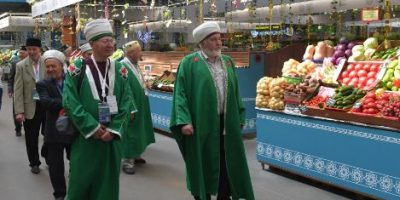Hong Kong election: Beijing-backed Lam first female leader

VICTORIA, MAR 26, (DNA) – Hong Kong election: Beijing-backed Lam first female leader Carrie Lam has been elected as Hong Kong’s new leader – the first woman to hold the top job. Mrs Lam, 59, had the backing of the Chinese government in Beijing and was widely expected to win.
Hong Kong has a degree of autonomy from Beijing but protests have been growing over Chinese interference.
The chief executive is not chosen by public vote but by a 1,200-strong committee dominated by pro-Beijing electors.
Pro-democracy groups held protests outside the election venue, calling the process a sham.
In her acceptance speech, Mrs Lam said her first priority during her five-year term would be to reduce social tensions.
She said she welcomed and encouraged a spectrum of voices and vowed to “tap the forces of our young people”.
“They are often at the forefront of society, pulling and pushing us as a whole to make progress.”
Mrs Lam also promised to uphold Hong Kong’s “core values” such as “inclusiveness, freedoms of the press and of speech, respect for human rights” and the rule of law.
Carrie Lam, freshly elected as Hong Kong’s chief executive, 26 March 2017Image copyrightEPA
Mrs Lam’s main rival, former finance chief John Tsang, was the public’s favourite, according to opinion polls.
The third candidate, and the most liberal, was retired judge Woo Kwok-hing.
Mrs Lam garnered 777 votes to Mr Tsang’s 365. Mr Woo received 21.
Calls for fully free elections have failed, despite intense demonstrations, known as the “umbrella protests”, in 2014.
Hong Kong’s Election Committee picked Mrs Lam to succeed current leader CY Leung, who will step down in July. She was formerly his deputy.
Mrs Lam, a long-time civil servant, is nicknamed the nanny because of her background running numerous government projects.
During the 2014 protests, which were spearheaded by young people, she took the unpopular stance of defending Beijing’s concessions for political reform.
This allowed Hong Kong people to choose their leader but only from pre-approved candidates.=DNA
===============
Related News

The largest halal fair in Russia will open on 14 MAY
ISLAMABAD, /DNA/ – More than 40 thousand visitors and 4.5 thousand goods according to HalalRead More

Saudi Foreign Minister to visit Pakistan
DNA ISLAMABAD: A high-level Saudi delegation, led by Foreign Minister Prince Faisal bin Farhan binRead More


Comments are Closed